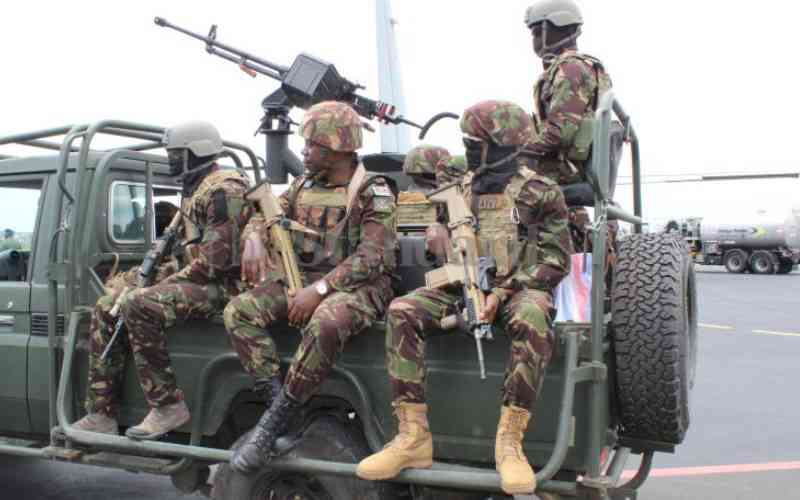×
The Standard e-Paper
Smart Minds Choose Us

Parliament will today, Wednesday, February 15, consider President William Ruto's request to deploy the Kenya Defence Forces (KDF) to six bandit-hit counties.
National Assembly Majority Leader Kimani Ichung'wah on Tuesday tabled the request by Defence Cabinet Secretary Aden Duale, with Defence and Foreign Relations Committee chairman Nelson Koech saying his committee was seized of the matter.